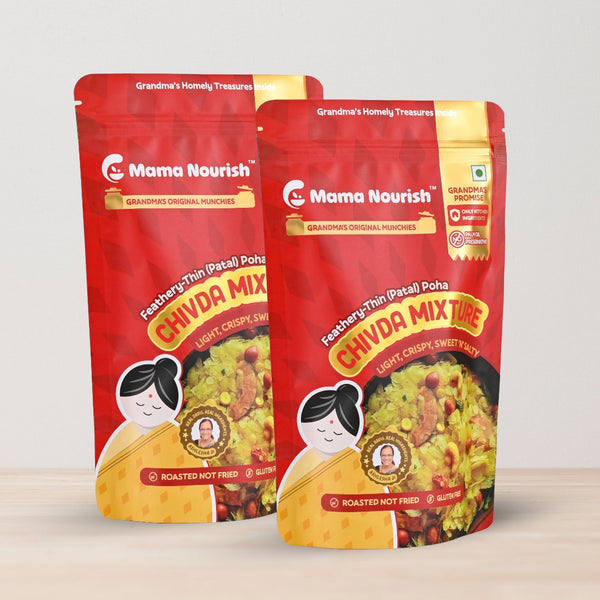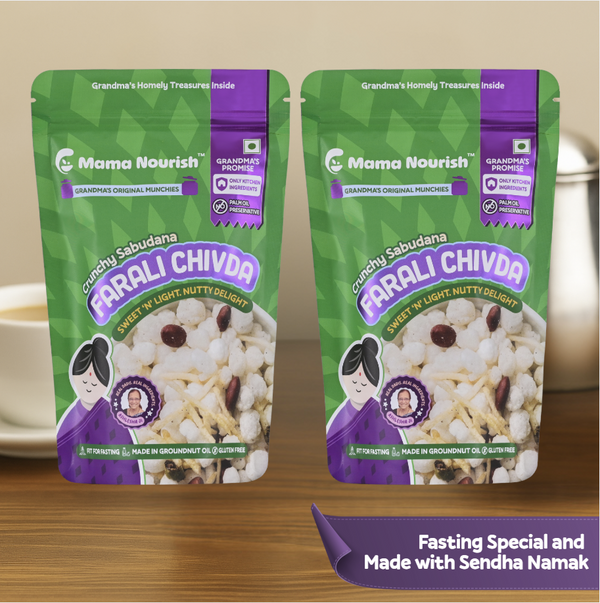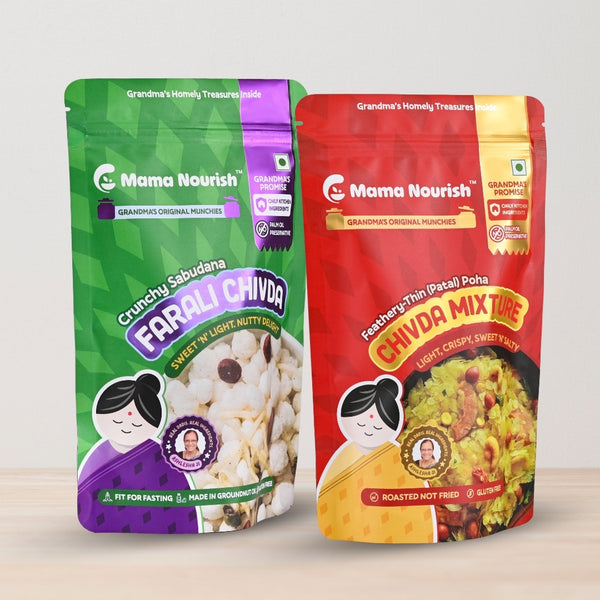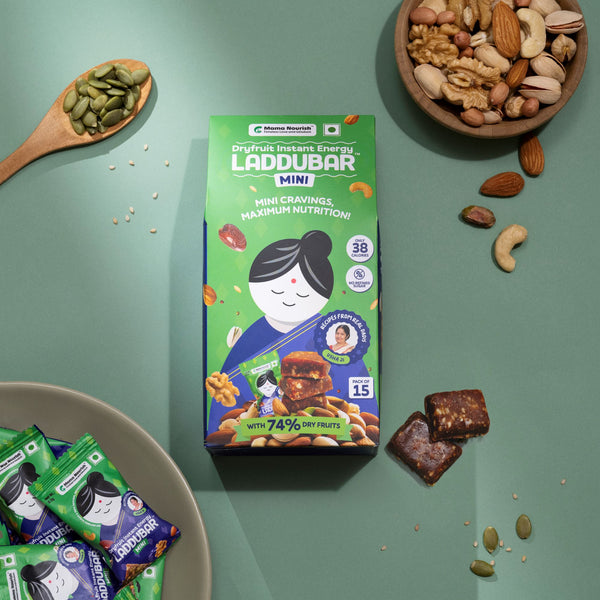
7 Summer Eating Myths Busted!
Summer is a season full of sunshine, sweat... and of course—stubborn food myths!
From believing icy drinks are a must to skipping meals in the name of staying “light,” there's no shortage of advice floating around this time of year. You've probably also heard claims like "watermelon is just water,” or “nuts are too heavy for hot days.”
But how much of this advice is actually rooted in truth, and how much is just seasonal hearsay?
Let’s find out and set the record straight on what our bodies really need in the summer by busting these summer eating myths!
1. You Should Eat Less in the Summer

Losing appetite in the hot summer is common, but slashing food intake drastically can lead to nutrient gaps, low energy, and dizziness, especially when you’re losing more fluids and minerals through sweat.
Moreover, relying only on fruits or juices for meals misses out on balanced macronutrients like protein and fibre, essential for steady energy and metabolic health. Besides getting enough protein and fibre helps prevent blood sugar spikes and keep energy stable, even in summer, so enough protein & fibre intake is a must.
What to Do Instead of Skipping Meals?
- Rather than skipping meals, aim for light, frequent, and balanced meals. Traditional Indian summer staples like moong dal khichdi, lauki curry, or curd rice are ideal—they’re light on the stomach, easy to digest, yet packed with nutrients.
 Moong Dal Khichdi
Moong Dal Khichdi 
Curd Rice
- Plus, adding seasonal & local fruits and berries to your diet is a good option as it keeps you hydrated & energised & makes meals wholesome.
- Ultimately, you should listen to your body and focus on balanced nutrition instead of skipping meals.
2. Myth: Nuts Are Too “Hot” for Summer

Nuts do have a natural warming effect. However, they are powerhouses of healthy fats, protein, fibre, magnesium, and vitamin E—nutrients that are crucial year-round for heart health, skin repair, and sustained energy.
Avoiding them completely can deprive your body of essential micronutrients, especially in a season when dehydration and sun exposure can take a toll on your health.
What To Instead of Avoiding Nuts Completely?
- You can soak nuts like almonds overnight—in fact, soaking nuts & having them in the morning is commonly practised in many Indian households. It's a smarter approach, especially in summer.

- Limit portion sizes (5–8 nuts a day) if you’re worried about heat, but don’t cut them out completely.
- You can make healthy snacks with nuts & add them to your diet.
3. Cool Drinks (Iced Beverages) & Ice Creams Are a Must for Cooling

While it’s tempting to sip on chilled sodas, cold coffees, iced teas or having ice creams on a hot day, these often contain excess sugar and can shock your digestive system, weakening digestion and sometimes causing bloating. Besides, excessive caffeine can dehydrate.
What are the Better Options?
- Opt for natural coolers like buttermilk (chaas), aam panna, sattu drink and nimbu pani with cooling seeds.
- Herbal infusions like mint water or lemon water are excellent for staying cool naturally.

- Drink water at room temperature or slightly cool, not ice cold, for optimal hydration.
4. Dates Should Be Avoided in Summer

Dates are often labelled as a winter food because they’re warming. But they also provide essential minerals like iron and potassium, which help replenish the body, especially if you’re sweating a lot. Potassium-rich foods like dates help in muscle function and hydration balance.
Ways to Eat Dates in Summer?
- Have dates in moderation—1–2 dates a day won’t harm and can actually help restore electrolytes.
- By making healthy snacks
- Blend dates into a cooling smoothie with yoghurt and banana.

5. Eating Raw Food Is Always Better in Summer

Raw fruits and veggies are hydrating, but an all-raw diet can strain digestion, particularly in humid climates. While raw foods are cooling, they need to be balanced with light-cooked foods to maintain digestive strength.
Cooking lightly can increase the bioavailability of some nutrients, for example, lycopene in tomatoes. The risk of contamination is always there for raw foods due to microbial growth if not stored properly.
- A good summer plate mixes raw salads with steamed or sautéed seasonal vegetables.

6. Drinking Water Alone is Enough for Hydration

Water is definitely required, but drinking water alone is not sufficient for summer. The body requires minerals like potassium, sodium, etc., plus other nutrients as well. Hence, you need to add diverse sources for hydration & essential nutrients.
What Else to Eat / Drink for Hydration?
- Eating local & seasonal fruits with high water content—watermelon, oranges, etc.

- Drinking coconut water, herbal-infused water, and lemon water as discussed earlier.
7. Watermelon Lacks Any Nutrients

It's a general belief that watermelon is just about water content. Even though it contains around 90 % water, it's also packed with other nutrients like potassium, magnesium, vitamin C, etc. The following table shows the nutritional profile of watermelon
Watermelon: Nutritional Facts
| Nutrient | Amount | Key Benefits |
| Calories | 30 kcal | Low in calories; supports weight management |
| Water Content | ~91% | Excellent for hydration |
| Carbohydrates | 7.6 g, | provide natural energy |
| Sugars | 6.2 g | Natural sugars |
| Dietary Fiber | 0.4 g | Aids digestion |
| Protein | 0.6 g | Minor, but contributes to daily intake |
| Fat | 0.2 g | Very low |
| Vitamin C | 8.1 mg (9% DV) | Boosts immunity and skin health |
| Vitamin A (beta-carotene) | 28 µg (3% DV) | Supports vision and skin repair |
| Potassium | 112 mg (2% DV) | Helps maintain fluid balance and muscle function |
| Magnesium | 10 mg (3% DV) | Important for muscle |
| Lycopene | ~4532 µg | Potent antioxidant for heart and skin health |
Final Foodie Thoughts!
Staying healthy in summer isn’t about cutting out foods or drinking lots of water—it’s about making mindful choices that support hydration, digestion, and energy levels. By opting for balanced nutrition, you can enjoy the season without falling for misleading myths.
Share






